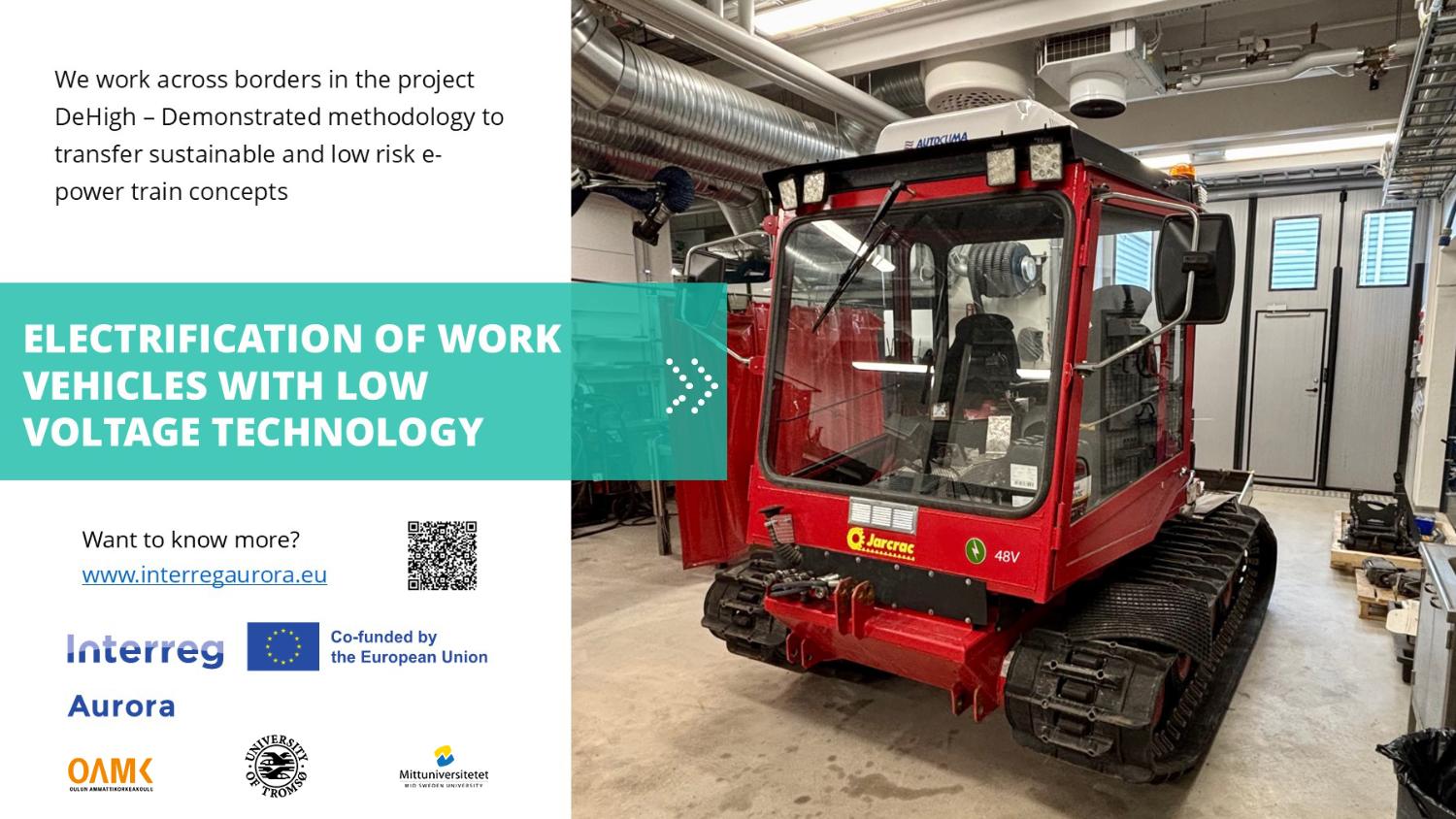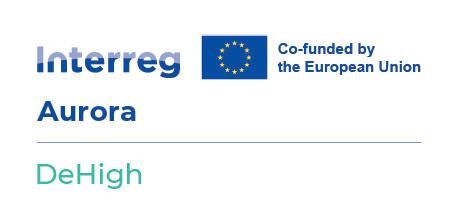DeHigh

Demonstrated methodology to transfer sustainable and low risk e-power train concepts
The DeHigh project aims to support the electrification of utility vehicles in the Interreg Aurora region, focusing on industries like forestry, agriculture, and transportation. These sectors, which heavily rely on internal combustion engine (ICE) vehicles, face increasing sustainability demands, and vehicle electrification is critical to reduce their environmental impacts. However, many SMEs in the region lack the expertise, resources, and infrastructure to make this transition smoothly.
The primary objective is to develop a replicable design methodology for 48V electric powertrains that can be adapted for various utility vehicles, both onshore and offshore. Compared to high-voltage systems, the 48V technology is more affordable, safer, and easier to maintain, making it accessible for smaller companies. The project will leverage the strengths of OAMK, MIUN, and UiT to test, simulate, and validate the 48V system in real-world applications.
Through collaborative work packages, the project will include vehicle drive cycle analysis, powertrain simulations, and demonstrations of electric vehicle performance in Arctic conditions. The project also aims to integrate existing research infrastructures like OAMKs NUVE-LAB and leverage MIUNs expertise in electric powertrain development.
Ultimately, the DeHigh project will help regional SMEs in their electrification journey, lowering technological and business risks, and increase competitiveness. By fostering cross-border collaboration, it will build a strong knowledge base, enabling sustainable transportation solutions for the entire Aurora region. Public seminars, communication events, and technical reports will ensure the results are widely shared and implemented even beyond the projects lifespan.
This initiative will contribute to a greener, more sustainable future for the regions industries, supporting long-term ecological, social, and economic sustainability goals.

End: januar 30. 2029
Unit: UiT The Arctic University of Norway Project categories: Anvendt forskning
Keywords: Teknologi
Funding:
InterregParticipants:
Juhani KähkönenBjarte Hoff
Hussein Mahdi Yaseen Al-Sallami
Umer Sohail